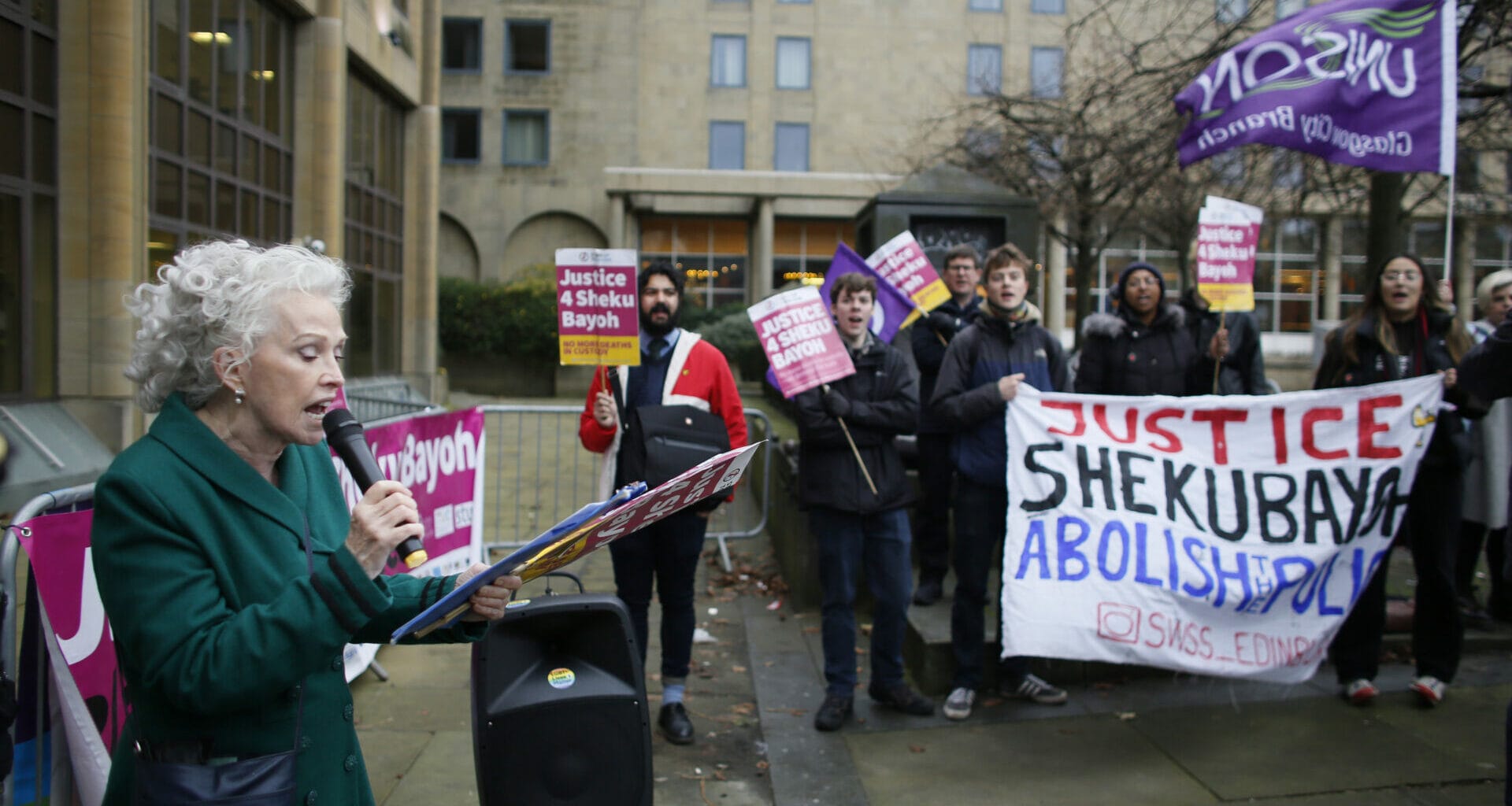Top Scottish cops led a US event on the best way to reduce the use of force when dealing with someone in possession of a knife, just days after Sheku Bayoh died in police custody in Fife after being restrained by six officers.
Bayoh stopped breathing during the police restraint on 3 May 2015 and died in hospital that morning. Police had been called to the scene after he was spotted behaving erratically and in possession of a kitchen knife. By the time police arrived he had discarded the knife.
A public inquiry into the circumstances of his death was launched in May 2022.
Evidence being considered by the inquiry includes a report from the US-based Police Executive Research Forum (PERF) – an organisation aiming to reduce the use of police force – which reveals Police Scotland led expert sessions on its “great success” in reducing the use of “deadly force”.
The revelation is part of episode seven of The Ferret’s podcast – Sheku Bayoh: The Inquiry – which summarises the evidence held so far. The inquiry recommences on Tuesday, 6 February.
During the previous hearing – which concluded in December – the inquiry heard that Police Scotland’s assistant chief constable Bernard Higgins attended a conference in Washington on 7 May 2015, where he spoke about the force’s expertise in reducing force in cases of those who were “mentally unwell or behaving erratically”, when armed with a knife.
The event was part of an 18 month partnership with a conference also held in Scotland in November that year.
In the inquiry hearing, which examined police training, senior counsel Angela Graham KC read from PERF’s report about lessons learned by US police from Police Scotland.
The myth that policing in Scotland is somehow more progressive – and less racist – than elsewhere is a huge barrier to police accountability.
Emily Mann, University of Edinburgh
“On May 7, 2015,” she read, “So that was a matter of days after Mr Bayoh died, PERF convened a meeting in Washington, DC, of approximately 300 police chiefs and other law enforcement executives.”
The report says that ACC Higgins was one of two UK police officials invited “because police in the UK have achieved great success in reducing the use of deadly force, especially in situations involving persons with mental illness wielding a knife or other non-firearm weapon”.
Graham then asked Inspector James Young, who was involved in a later PERF conference. “Do you remember in 2015, in May, if there had been great success achieved by Police Scotland in reducing use of deadly force?”
Inspector Young admitted he did not. He claimed he had not officially been notified of Sheku Bayoh’s death and said no lessons learned from it had been used to update a new officer safety training manual which was circulated in 2016.
“I became aware of the incident through the media,” he told the inquiry. “I was never asked to do any sort of work because of his death because I was unaware of the circumstances.”
Emily Mann, a researcher from Edinburgh University who specialises in policing, said: “This reeks of Scottish exceptionalism. The myth that policing in Scotland is somehow more progressive – and less racist – than elsewhere is a huge barrier to police accountability.”
Police Scotland said it would be “inappropriate” to comment while the inquiry is ongoing.
Listen to all seven episodes of the podcast.
Main image thanks to Angela Catlin
This Ferret story was also published in the Sunday National. Our partnerships with other media help us reach new audiences and become more sustainable as a media co-op. Join us to read all our stories and tell us what we should investigate next.














